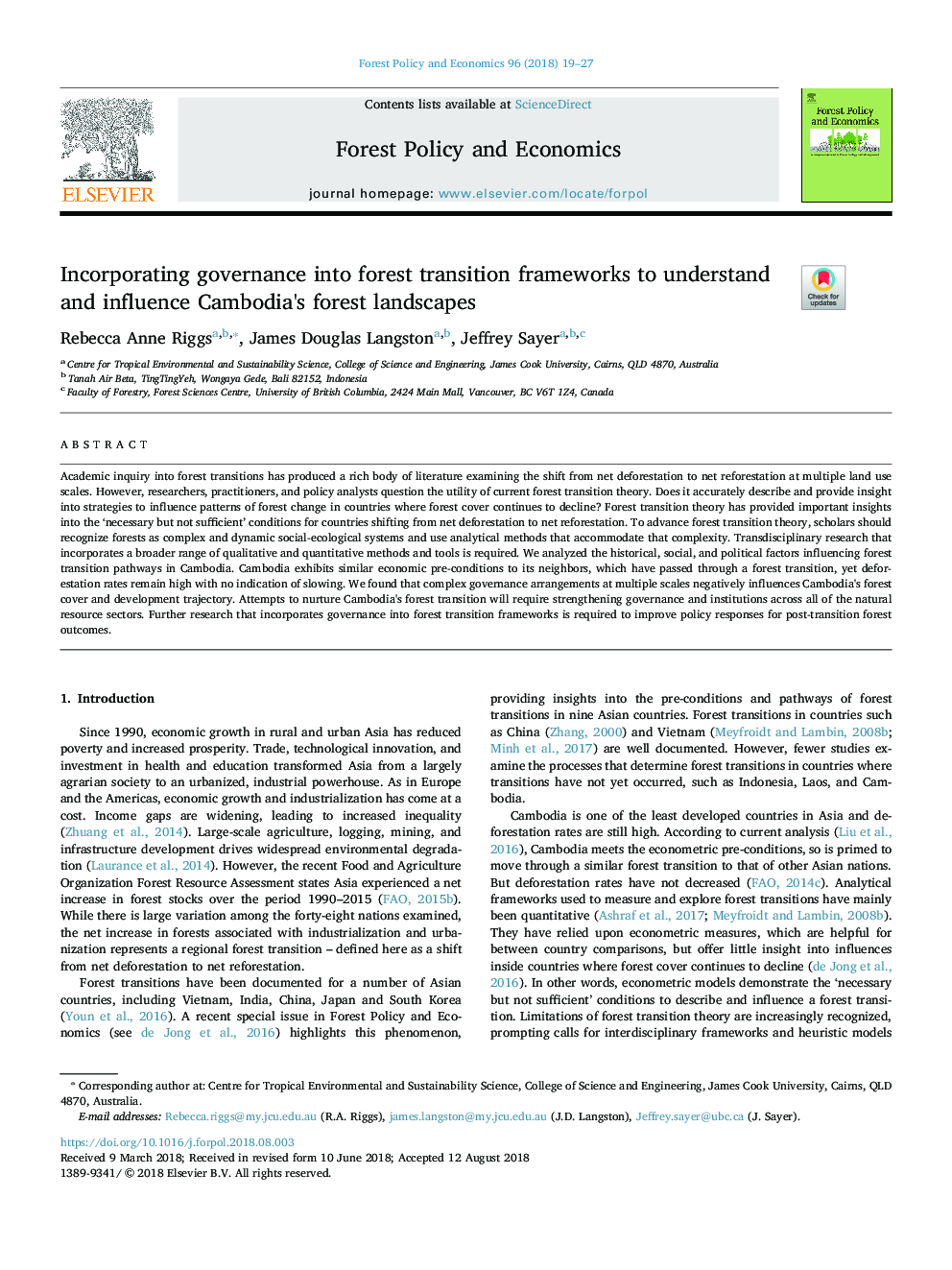| Article ID | Journal | Published Year | Pages | File Type |
|---|---|---|---|---|
| 8941369 | Forest Policy and Economics | 2018 | 9 Pages |
Abstract
Academic inquiry into forest transitions has produced a rich body of literature examining the shift from net deforestation to net reforestation at multiple land use scales. However, researchers, practitioners, and policy analysts question the utility of current forest transition theory. Does it accurately describe and provide insight into strategies to influence patterns of forest change in countries where forest cover continues to decline? Forest transition theory has provided important insights into the 'necessary but not sufficient' conditions for countries shifting from net deforestation to net reforestation. To advance forest transition theory, scholars should recognize forests as complex and dynamic social-ecological systems and use analytical methods that accommodate that complexity. Transdisciplinary research that incorporates a broader range of qualitative and quantitative methods and tools is required. We analyzed the historical, social, and political factors influencing forest transition pathways in Cambodia. Cambodia exhibits similar economic pre-conditions to its neighbors, which have passed through a forest transition, yet deforestation rates remain high with no indication of slowing. We found that complex governance arrangements at multiple scales negatively influences Cambodia's forest cover and development trajectory. Attempts to nurture Cambodia's forest transition will require strengthening governance and institutions across all of the natural resource sectors. Further research that incorporates governance into forest transition frameworks is required to improve policy responses for post-transition forest outcomes.
Related Topics
Life Sciences
Agricultural and Biological Sciences
Forestry
Authors
Rebecca Anne Riggs, James Douglas Langston, Jeffrey Sayer,
